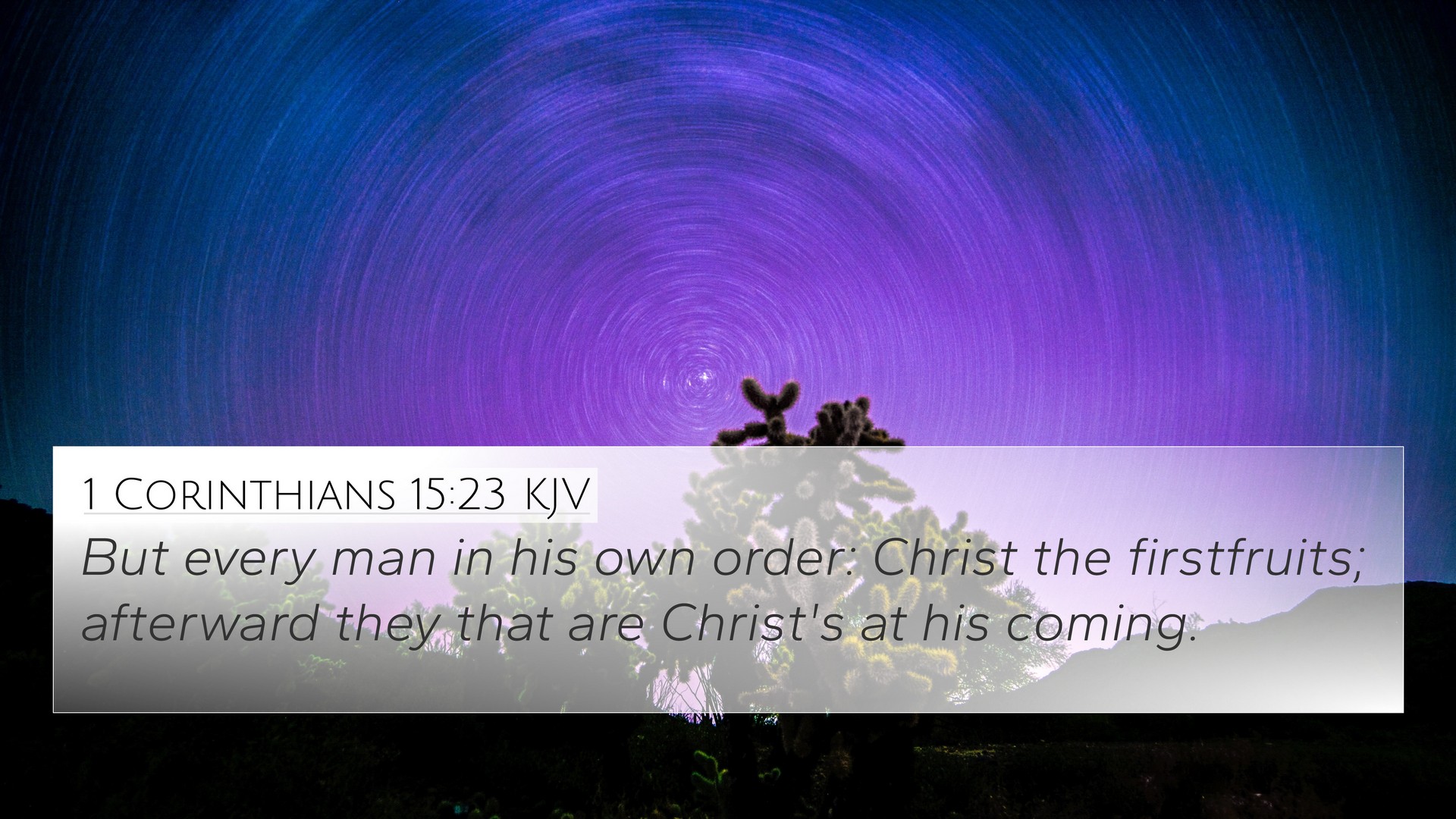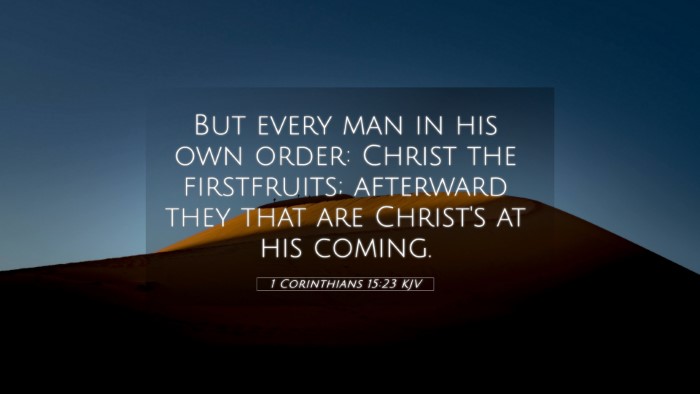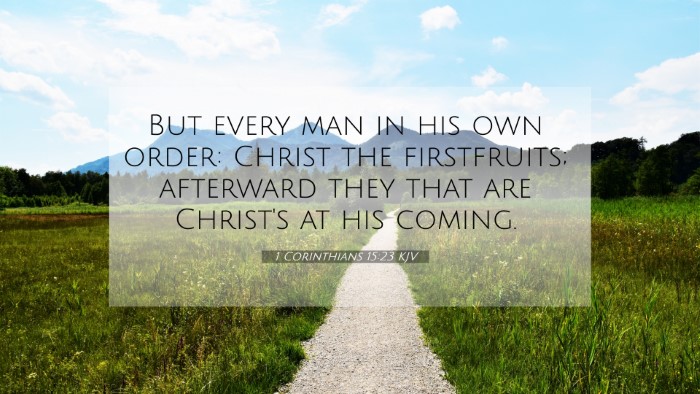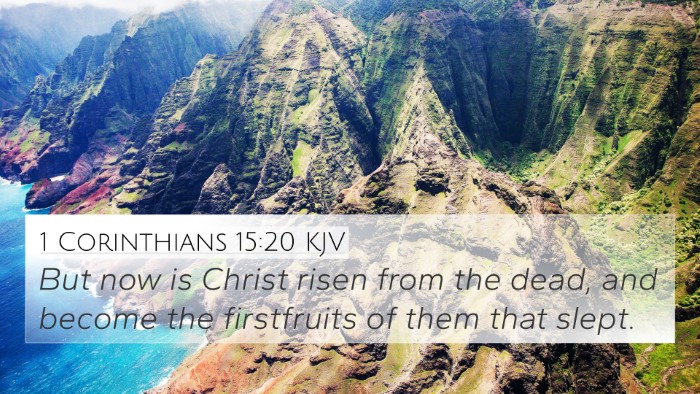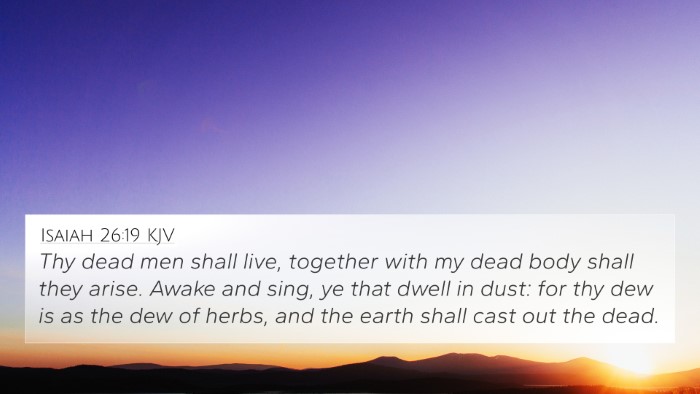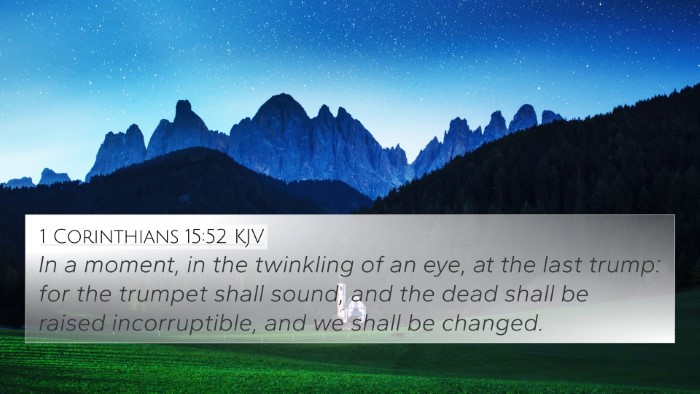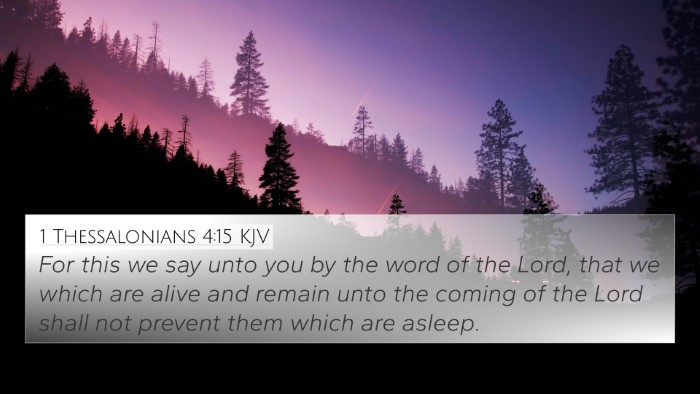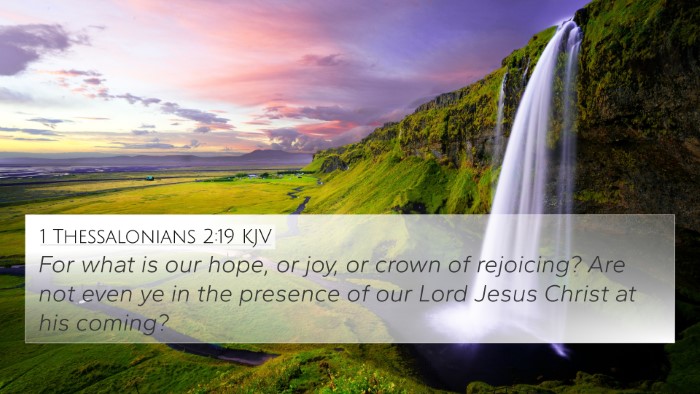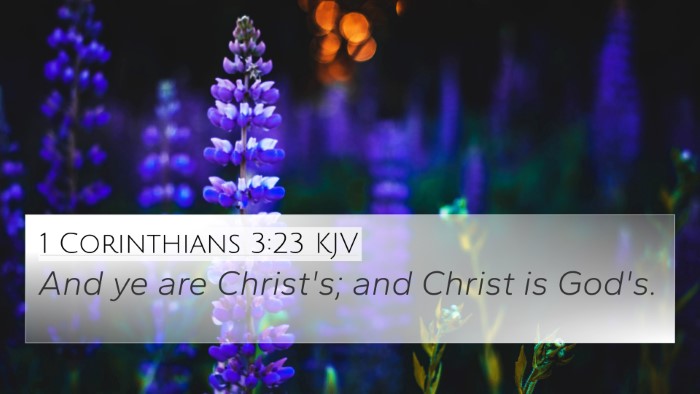Understanding 1 Corinthians 15:23
Verse: 1 Corinthians 15:23 - "But every man in his own order: Christ the firstfruits; afterward they that are Christ's at his coming."
Summary of Meaning
This verse, nestled in the context of Paul’s discussion on resurrection, highlights the order of resurrection, emphasizing the preeminence of Christ as the "firstfruits" who rose first, followed by those who belong to Him at His return. This establishes a sequence in the resurrection plan, assuring believers of their future hope.
Insights from Public Domain Commentaries
Matthew Henry's Commentary
Henry emphasizes the importance of Christ's resurrection as the foundational event for all believers. He notes that "firstfruits" signifies that Christ's resurrection is a guarantee of the resurrection to come for His followers. Henry also highlights that this verse brings comfort to the believers by confirming that there will be a time when they too will rise, evident in the phrase "at his coming."
Albert Barnes' Notes on the Bible
Barnes elaborates on the notion of order in the resurrection. He points out that while Christ's resurrection comes first, it is a precursor to the resurrection of others. Barnes also notes the theological implication that believers' resurrection is dependent on Christ's victory over death, indicating a systematic divine plan in the resurrection of the dead.
Adam Clarke's Commentary
Clarke provides a thorough explanation of "firstfruits" as a term rooted in Jewish tradition referring to the initial harvest offered to God, signifying Christ's role as the chief representative of those who would be resurrected. He also discusses the eschatological significance, emphasizing that the resurrection of Christians follows Christ’s, reaffirming the hope of eternal life.
Cross-References
- 1 Thessalonians 4:16-17: "For the Lord himself shall descend from heaven with a shout, with the voice of the archangel, and with the trump of God: and the dead in Christ shall rise first."
- Romans 8:11: "But if the Spirit of him that raised up Jesus from the dead dwell in you, he that raised up Christ from the dead shall also quicken your mortal bodies by his Spirit that dwelleth in you."
- Colossians 1:18: "And he is the head of the body, the church: who is the beginning, the firstborn from the dead; that in all things he might have the preeminence."
- Revelation 20:5: "But the rest of the dead lived not again until the thousand years were finished. This is the first resurrection."
- John 11:25-26: "Jesus said unto her, I am the resurrection, and the life: he that believeth in me, though he were dead, yet shall he live."
- Philippians 3:20-21: "For our conversation is in heaven; from whence also we look for the Savior, the Lord Jesus Christ: Who shall change our vile body, that it may be fashioned like unto his glorious body."
- Acts 26:23: "That Christ should suffer, and that he should be the first that should rise from the dead, and should show light unto the people, and to the Gentiles."
Thematic Connections
Thematically, this verse connects with the broader biblical narrative concerning resurrection, hope, and eternal life. The resurrection serves as a pivotal point linking various biblical texts that discuss life after death, emphasizing the continuity from the Old Testament prophecies to the New Testament realities. The portrayal of Christ as the firstborn among the dead resonates with both Jewish sacrificial imagery and the Christian hope of salvation.
Applying the Insights
Studying 1 Corinthians 15:23 through the lens of various commentaries and cross-references provides a comprehensive understanding. For those interested in cross-referencing biblical texts, utilizing tools such as a Bible concordance or a cross-reference Bible study guide enhances one's Biblical literacy. Engaging with the scripture through a comparative study of Pauline epistles allows for a deeper grasp of complex doctrines such as the resurrection.
Conclusion
1 Corinthians 15:23 reveals profound truth about the order of resurrection in Christian hope, firmly rooting the believer's future in the resurrection of Christ. Through careful study and cross-referencing of related scriptures, believers can find reassurance and encouragement in the promise of eternal life. Exploring tools and resources for Bible cross-referencing enriches the understanding of these themes, facilitating a more integrated and cohesive grasp of God's redemptive plan.
